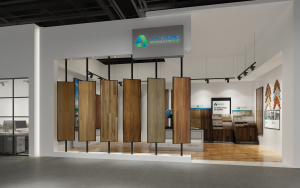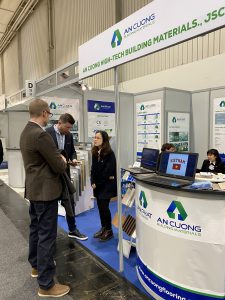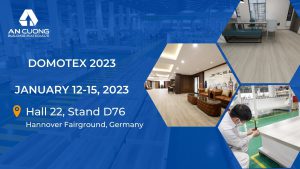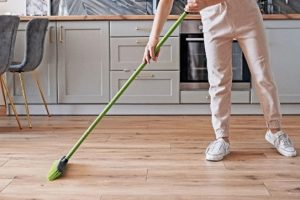Due to its outstanding features, vinyl flooring has become a popular choice in interior design. Among them, SPC (Stone Plastic Composite) and LVT (Luxury Vinyl Tile) are the most popular types. Each type has unique advantages, depending on different consumer needs. Considering SPC and LVT flooring, this article will help you compare them and choose the best option for your living space.
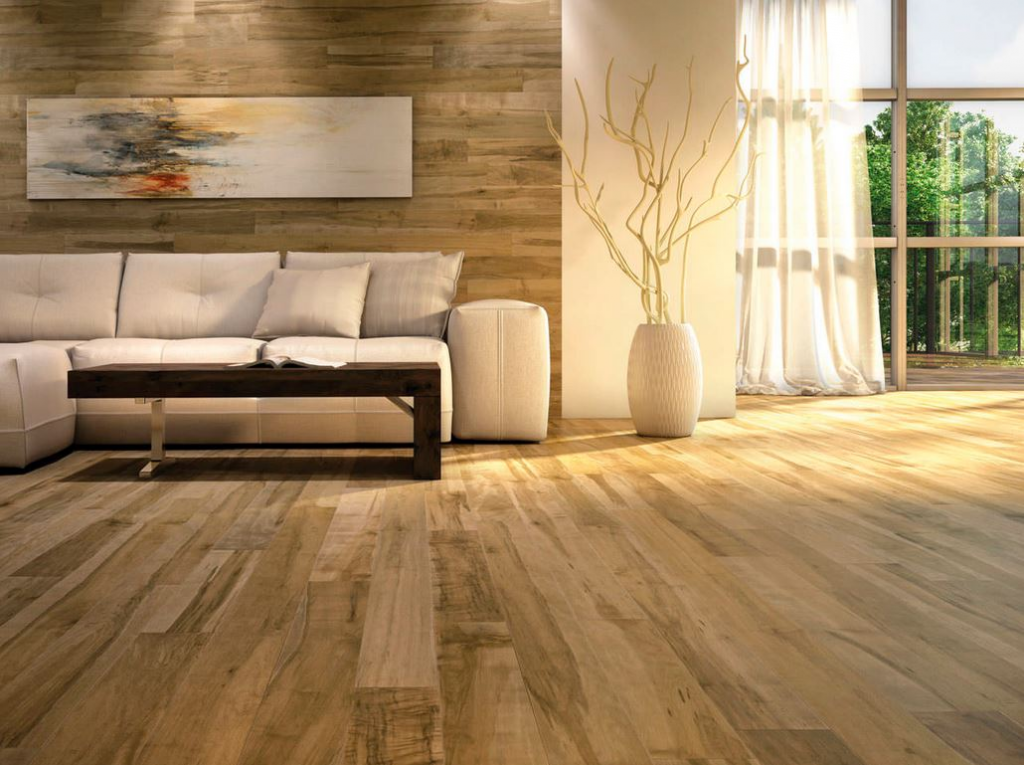
What is SPC Flooring?
SPC flooring (Stone Plastic Composite) is a type of rigid core vinyl flooring composed of virgin PE resin, calcium carbonate (limestone), and additives. It’s widely used in commercial and residential spaces due to its variety of designs, durability, and ease of installation.
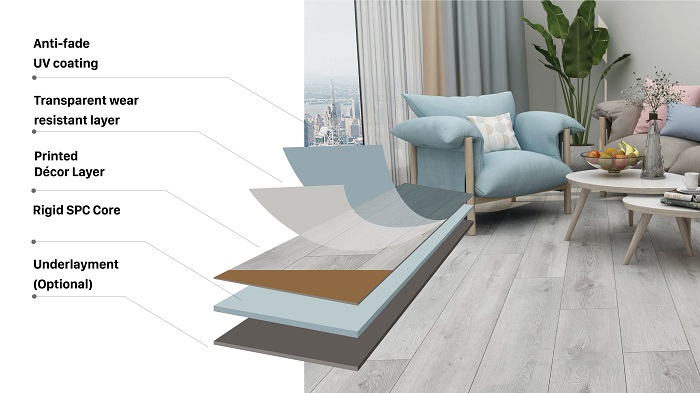
What is LVT Flooring?
LVT (Luxury Vinyl Tile) flooring is a modern, glue-down vinyl floor made from polyvinyl chloride (PVC), calcium carbonate, plasticizers, PU coating, and other additives. LVT offers luxury and variety to any interior space.
Differences Between SPC and LVT Flooring
Structure and Composition:
- SPC Flooring: Made from limestone and PVC, resulting in a rigid and durable core. This structure gives SPC high stability and minimal deformation due to temperature and humidity changes.
- LVT Flooring: Primarily made from PVC, offering more flexibility and softness compared to SPC.
Thickness and Weight:
- SPC Flooring: Usually thicker and heavier, with a thickness range of 4-6mm. The added weight enhances stability, especially in high-traffic areas.
- LVT Flooring: Thinner, typically between 2-4mm, and lighter than SPC.
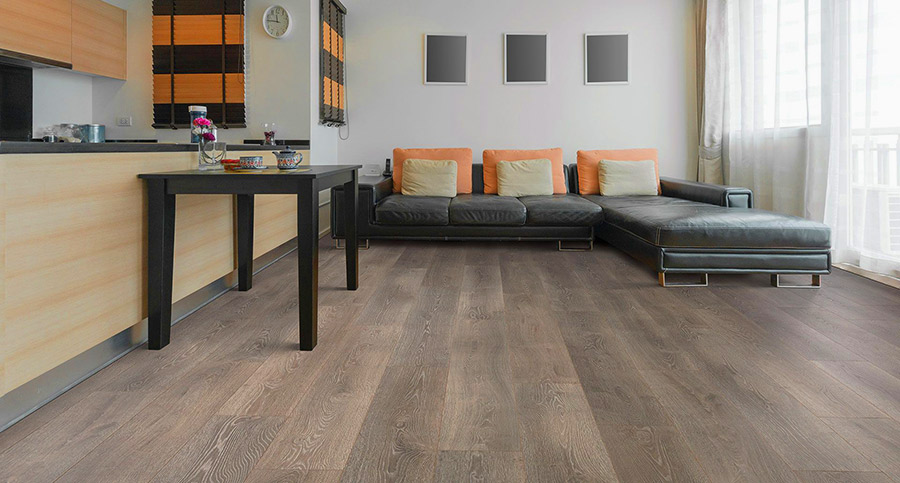
Hardness and Durability:
- SPC Flooring: More rigid and durable due to its limestone content, making it resistant to scratches and dents from heavy furniture and daily activities.
- LVT Flooring: Although LVT flooring has superior scratch resistance, its softer and more flexible nature means heavy furniture can easily cause indentations.
Cost:
- SPC Flooring: Generally more expensive due to its robust structure and higher durability, but the initial investment often pays off with a longer lifespan and lower maintenance costs.
- LVT Flooring: More affordable, making it a popular choice for those looking to save on initial costs while still enjoying quality vinyl flooring.
Similarities Between SPC and LVT Flooring
High Durability and Water Resistance: Both SPC and LVT flooring are highly water-resistant, making them excellent choices for wet areas like kitchens and bathrooms.
Easy Installation: Both types are easy to install, typically using click-lock systems or adhesive, saving time and effort during the installation process.

Many Design Options: SPC and LVT offer various colors and patterns, from natural wood grains to elegant stone textures, allowing users to match their flooring with any interior style.
Scratch and Impact Resistance: Both types have a protective top layer that resists scratches and impacts, ensuring longevity and preserving their appearance.
Easy Maintenance: Cleaning and maintaining SPC and LVT flooring is simple. A damp cloth is usually sufficient to keep them looking fresh and shiny.
Quick Comparison of SPC and LVT Flooring
| Feature | SPC | LVT |
| Fade Resistance | Medium | Medium |
| Stain Resistance | High | Medium |
| Deformation Resistance | High | Low |
| Scratch Resistance | High | Medium |
| Water Resistance | High | High |
| Ease of Maintenance | Easy | Easy |
| Installation | Quick | Quick |
| Cost | Reasonable | Affordable |
Conclusion
Choosing between SPC and LVT flooring depends on individual needs, preferences, and budget. SPC flooring offers greater stability and durability, making it suitable for areas with varying moisture levels and heavy use. In contrast, LVT flooring provides a softer feel and a wide range of design options, making it an economical and versatile choice for various environments.
An Cuong Building Materials currently offers both SPC and LVT flooring, ensuring that you find the perfect solution to enhance the beauty and functionality of your house. For more information, contact our hotline at (+84) 963 017 576.


